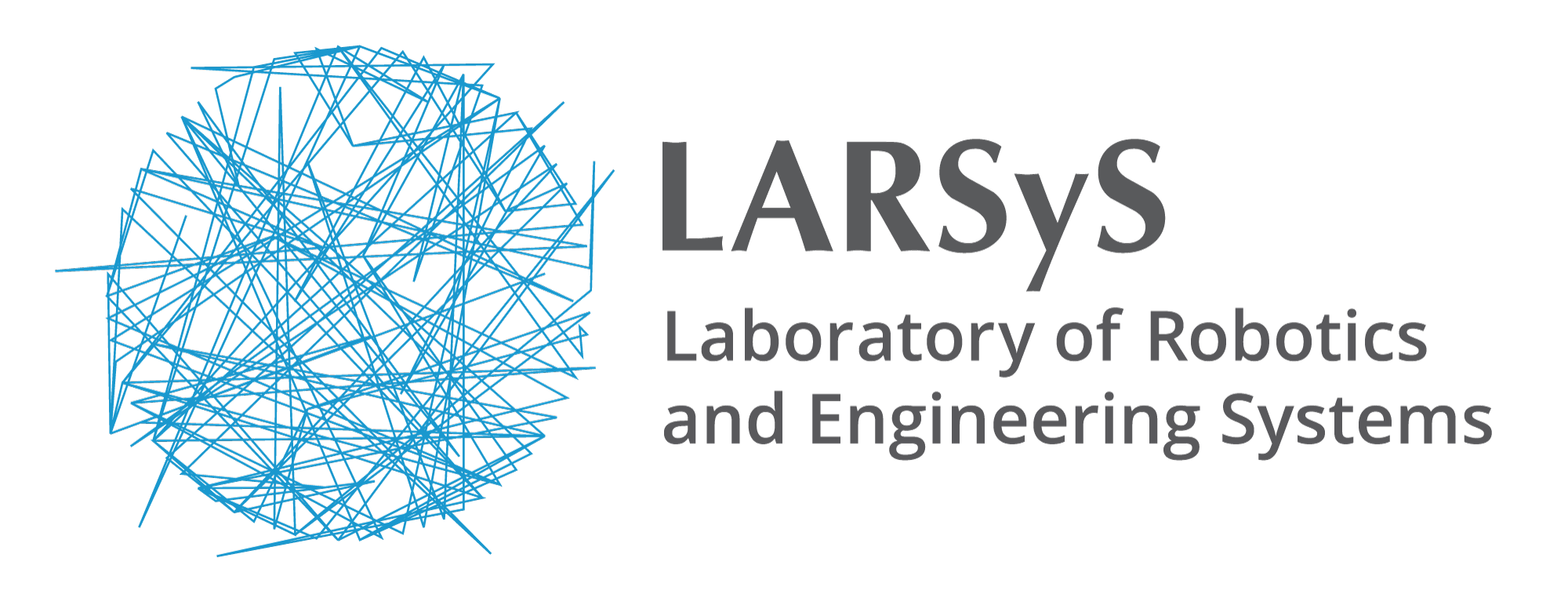The Associate Laboratory of Robotics and Engineering Systems (LARSyS) was founded in 2001 to conduct basic and applied research in engineering technologies relevant to industrial applications and societal challenges. LARSyS is uniquely positioned to contribute to the new research challenges because of:
- The strong scientific background in Systems, Data Science and Learning;
- The interdisciplinary social-technical systems (STS) approach combining analytical tools and methods of engineering, with social sciences and design tools and methods of inquiry;
- The real-world, application-driven motivation towards societal problems defined in thematic lines;
- The engagement with the social and economic implications of problems and solutions, leading to sustainable development goals through collaborations with industry, public policy recommendations and spin-off companies.

Our vision is to excel as a research centre in the design of complex, socio-technical engineering systems that emerge from massive flows of data and a new generation of autonomous devices and cognitive artefacts, that bridge the gap between the digital and physical worlds.
LARSyS involves a community of 126 integrated researchers with a PhD, mobilizing 34.8M€ of funding in the last five years, the majority from international (33%) and other sources (20%) including companies. LARSyS multiplied by 5 the FCT Institutional funding obtained in 2013 with the evaluation of EXCELLENT. During the time period of 2013-2017, 66% of SRJ indexed publications were Q1 and 18% were Q2.
LARSYS brings together four R&D units:
- Institute for Systems and Robotics (ISR)
- Centre for Innovation, Technology and Policy Research (IN+)
- Marine, Environment & Technology Centre (MARETEC)
- Interactive Technologies Institute (ITI)
Through this association, which emerged naturally from previous consortia, LARSyS seeks for enhanced capacity to foster research at new frontiers of knowledge at the best international level. It considers researchers from different backgrounds and perspectives acquired in different areas of science (e.g., experimental, computational, and theoretical) and different sectors (university, industry, governmental, and regional administration).
LARSyS operates through its four research centers, which provide specific areas of expertise in their main domains of knowledge. They involve ten Laboratories and/or Groups, affiliating researchers in a way suitable to conduct specialized work in their main fields of expertise and to provide the necessary knowledge and experience to foster LARSyS scientific program.


